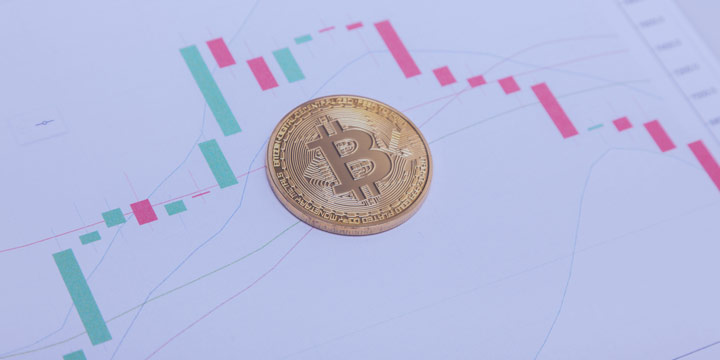Have you lost any assets in crypto or heard of people who’ve lost their cryptocurrencies in rug pulls or other scams? Ever asked yourself how to avoid crypto scams? Chances are you’ve seen stories of crypto holders or warnings on social media against various websites or platforms.
Cryptocurrency scams are rising, targeting unsuspecting victims drawn to the allure of quick profits and digital investments. As the popularity of cryptocurrencies continues to grow, so does the need for people to educate themselves about the potential risks and take proactive steps to protect and manage their hard-earned crypto like pros.
In this article, we’ll explore crypto scams, highlight their dangers and provide you with practical tips on how to avoid falling victim to them. Let’s dive right in.
The Basics of Crypto Scams
To effectively protect yourself, it’s crucial to understand what constitutes a cryptocurrency scam. Crypto scams are fraudulent activities aiming to deceive and defraud individuals in the cryptocurrency ecosystem. These scams can take various forms, including:
- Ponzi schemes
- Phishing scams
- Pump and dump schemes
- Malware and ransomware attacks
Taking Advantage of an Uninformed Population
Cryptocurrencies have gained immense popularity, with millions worldwide investing in these digital assets. The decentralized nature, potential for high returns and promise of financial independence have all contributed to the widespread adoption of cryptocurrencies. However, this growing popularity has also attracted the attention of scammers who seek to exploit unsuspecting individuals.
Avoiding cryptocurrency scams is paramount to protecting your investments and ensuring the safety of your crypto assets. Falling victim to a scam can lead to significant financial losses, emotional distress and frustration. By proactively educating yourself and implementing preventive measures, you can reduce the chances of becoming a target for scammers and safeguard your hard-earned money.
Having explained the basics of cryptocurrency scams, we’re moving to the various types in the market, highlighting notable crypto frauds.
Understand How to Avoid Crypto Scams
The cryptocurrency market has seen numerous scamming tactics, from giveaway scams to fake Initial Coin Offerings (ICOs). We’ll explore the common cryptocurrency scams present in the current market.

Here are crucial factors to review before committing to a payment gateway.
Ponzi Scheme – The Fraudster’s Classic
Have you ever heard of Ponzi schemes? They’re sneaky tricks scammers use to fool people and take their hard-earned crypto. Here’s how they work.
Generally, scammers make big promises to investors and the market. They mention, “Buy and hold our crypto and watch your return 1000X! You’ll get super high returns on your money!” Sounds tempting, right?
But here’s the catch: the scammers use the money from new investors to pay off the older ones. It’s like a never-ending cycle of deception.
A $2.4 Billion Cryptocurrency Con
Robust encryption and fraud prevention measures should be in place to safeguard against any unauthorized access or fraudulent activities. By prioritizing security and compliance, you can build trust with your clients and establish a reputable image for your forex brokerage.
Here’s an example to make it clear. Remember the BitConnect fraud? It’s a perfect example of a Ponzi scheme and a powerful reminder of why we must avoid cryptocurrency scams. BitConnect lied about its ability to generate profits through a ‘volatility software trading bot’ claiming over 40% monthly returns.
But guess what? It was all a big lie. Eventually, the scheme fell apart, with the scammers facing the long arm of the law.
Can you imagine how devastating it must have been for the people who trusted BitConnect? They ended up losing their cryptocurrency investments.
Crypto and Blockchain Phishing Attacks on the Rise
Phishing scams involve tricking individuals into revealing sensitive information, such as login credentials or private keys, by posing as legitimate entities. Scammers pretend to be trustworthy and send fake emails or create websites resembling the real ones you use for a cryptocurrency exchange or digital wallet. Their nefarious plan is to steal your precious cryptocurrency assets without permission!
Fraudsters have clever tricks to make their phishing attempts seem real. They might send an email claiming something fishy is ongoing with your account. Often, fraudsters require you to check and confirm your info. The emails usually have links leading you to fake websites made to look just like the real ones. Scammers even pretend to be super helpful and friendly, like they work for customer support or are famous figures in the crypto world.
But don’t worry. You can outsmart these common scams by keeping your eyes wide open! Here are signs to watch out for:
Check the email sender’s address: Scammers try to trick you using email addresses similar to the real ones. But, if you look closely, you might spot tiny differences or misspelled words. Always be extra careful and ensure the sender’s email address is legit.
- Look closely at the website’s address to avoid cryptocurrency scams: Before you type in your login details or personal info, examine the website’s address. Scammers make fake websites resembling legitimate addresses. However, they often have a missing letter or a slight misspelling, similar to phishing emails.
- Don’t trust random emails: If you get an unexpected email asking for personal info or urgent action, be skeptical. Legit companies don’t usually ask for important stuff through email. To be safe, contact the company using their official channels to ensure the email is legitimate.
- Be careful with links: Hover your mouse over links in emails to see where they go. If the link looks weird or doesn’t match your expectations, don’t click on it. Instead, type the website’s address into your browser by hand to be sure you’re going to the right place.
- Stay alert: Scammers can even find you on social media. They might pretend to be cryptocurrency pros or offer you special investment deals. But be cautious! Don’t give personal info or send cryptocurrency to strangers or unknown accounts.
By following these tips, you’ll be a detective, ready to spot and avoid those tricky phishing scams. Let’s move to the popular pump-and-dump schemes.
The Hit and Run of Price Manipulations
Pump-and-dump schemes in the cryptocurrency world are like the smoke and mirrors of the crypto industry. Scammers have mastered the art of manipulation. And their target is none other than unsuspecting investors like you. So, let’s unveil the mystery behind these schemes and arm you with the knowledge to spot them.
First, let’s break it down: what exactly is a pump and dump scheme? Well, it’s a deceptive tactic where scammers artificially inflate the price of a crypto coin to lure in investors. They generate a buzz around the cryptocurrency, hyping it up like the next big thing. But here’s the catch: once the price skyrockets and unsuspecting investors jump in, the scammers sell their stash at the inflated price, causing the price to come crashing down. Ouch!
Now, you might wonder how these scammers manipulate prices so easily. Well, they take advantage of the inherent volatility in the crypto space. With just a few strategic moves, they can create a frenzy leading to a sudden surge in demand for a specific coin. They often rely on various channels to spread false information, such as social media, online forums or fraudulent news articles. These tactics can be persuasive, making it difficult for experienced investors to resist the allure.
You can protect yourself from falling victim to a pump-and-dump scheme by noting telltale red flags. For instance, be cautious if you see an abrupt surge in the price of a lesser-known coin without any news or developments to support it. That’s a classic sign of a pump and dump in progress. Also, watch out for aggressive marketing tactics or individuals urging you to invest before it’s too late. Remember, haste can lead to waste.
So, here’s a question for you. Can you spot the signs of a pump-and-dump scheme in action?
Let’s dive into another treacherous aspect of cryptocurrencies: malware and ransomware attacks. You might be wondering, what exactly are these attacks? And how can they affect my crypto coins? Well, let’s find out together.

Malware and Ransomware Attacks
Picture this: you’re happily browsing the web, looking for the latest trends in the crypto space. Suddenly, your device gets infected with malicious software, commonly known as malware. Scammers design these cyber threats to gain unauthorized access to sensitive information and wreak havoc on your cryptocurrencies.
Ransomware attacks, on the other hand, take it a step further. They lock you out of your device or crypto wallet, holding your valuable data hostage until you pay a hefty ransom in crypto. It’s like a digital kidnapping of your assets.
Common Methods of Infecting Users’ Devices
Let’s explore how these sneaky fraudsters execute their crypto scam on unsuspecting users’ devices.
- Phishing emails: We’ve already described how these work. Avoid clicking on any freebies (a giveaway scam) or suspicious links within an email.
- Malicious downloads: Be cautious when downloading software or apps related to the crypto industry. Scammers often disguise malware-infected files as legitimate applications.
- Infected websites: Cybercriminals constantly set up fake websites resembling popular crypto exchanges or platforms. Visit only authentic websites to avoid crypto scams.
Measures to Protect Against Malware and Ransomware Attacks
Having shed light on the devious tactics of crypto scammers, it’s time to learn how to protect your cryptocurrency assets. Here are essential measures you should take to avoid these crypto scams:
- Keep your devices updated: Regularly update your operating system and security software to patch any vulnerabilities scammers might exploit. These updates often include crucial security fixes to protect you from the latest threats.
- Use reliable anti-virus software: Invest in a reputable malware protection program to detect and block malware. It acts as a shield, scanning your system for malicious activities and keeping those scammers at bay.
- Enable two-factor authentication (2FA): Add an extra layer of security to your crypto exchange or wallet by enabling 2FA. This way, even if scammers receive your login details, they won’t access your account without the second authentication factor.
- Backup your crypto wallet: Regularly backup your crypto wallet to an offline storage device, such as a hardware wallet or a secure offline backup. If your device gets infected or compromised, you can restore your wallet and regain access to your funds.
How to Avoid Crypto Scams: The Best Practices
One of the most common red flags is the promise of guaranteed high yields. But the old adage, ‘if it’s too good to be true, it generally is’ perfectly applies to such advertised sky-high yields.
The truth is guarantees of exorbitant returns are unrealistic and should raise suspicion. Crypto scams often lure unsuspecting people with promises of quick and substantial profits. They paint a picture of overnight success and financial freedom, but the reality is far from it.
It’s crucial to conduct thorough research to protect yourself from falling prey to such crypto scams. Don’t rely solely on the enticing claims made by scammers; instead, dig deeper. Explore the legitimacy of the project or platform, analyze its whitepaper and scrutinize the team behind it. Look for transparency, track records and credibility. Be cautious, ask questions and rely on your own research to spot cryptocurrency scams with illogical promises.

What to Do If You Fall Victim to a Crypto Scam
You can protect yourself and increase the chances of recovering your funds by taking immediate steps. Let’s explore the necessary actions you can take.
Mitigate Further Damage or Loss to Your Crypto Assets
Act swiftly to review your account authentication credentials and block your wallet from conducting transactions.
- Change your passwords: Immediately change the passwords for your digital wallet, online exchanges and other compromised accounts. Create strong, unique passwords to prevent scammers from guessing your credentials.
- Disconnect compromised devices: If you believe a specific device was compromised, disconnect it from the internet or perform a factory reset to remove any potential malware.
- Contact your bank: If the scam involved unauthorized access to your bank accounts, contact your bank immediately to report the incident and take the necessary steps to secure your accounts.
Notify the Relevant Authorities and Platforms
Reporting the scam to the relevant authorities and platforms is crucial in seeking justice and potentially recovering your funds. Here’s what you should do:
- Contact your local law enforcement agency and provide them with all the details to create a record of the incident and potentially aid in investigations.
- If the scam occurred on a specific cryptocurrency platform or exchange, report the incident to their customer support or security team. They may be able to provide further assistance or take action against the scammer.
- Notify the appropriate regulatory bodies in your country or region about the scam. They can help track down scammers and take legal action.
Final Thoughts on How to Avoid Crypto Scams
As the popularity of cryptocurrencies continues to grow, so does the risk of encountering crypto scams. However, with the right knowledge and precautions, you can navigate the crypto space safely. Educate yourself about cryptocurrencies, use legitimate sites and verify the legitimacy of projects and teams.
Remember, knowledge is power. Share what you’ve learned about avoiding crypto scams with your friends, family and colleagues. By spreading awareness, you can help protect others from falling into the traps of fraudsters. Keep your digital wallet secure, be cautious with your personal information and always double-check before sending cryptocurrency.
A Haven for all Cryptocurrency Users
How to avoid crypto scams? Where can you find a safe place to carry out your crypto-related activities?
CoinPayments provides a secure platform where users worldwide can safely store their cryptocurrency assets. Merchants who trade in crypto or accept payments in digital assets, especially in high-risk businesses, will also benefit from the business support of CoinPayments.
Merchants can accept cryptocurrencies with CoinPayments, where they’ll receive over 100 types of crypto in their wallets while paying an ultra-low transaction fee starting at 0.5% only.
With a lot of payments volume since 2013, CoinPayments will help keep your cryptocurrency value safe from fraudulent schemes.
Choose to avoid cryptocurrency scammers with CoinPayments today.
Visit the CoinPayments website to learn more.



